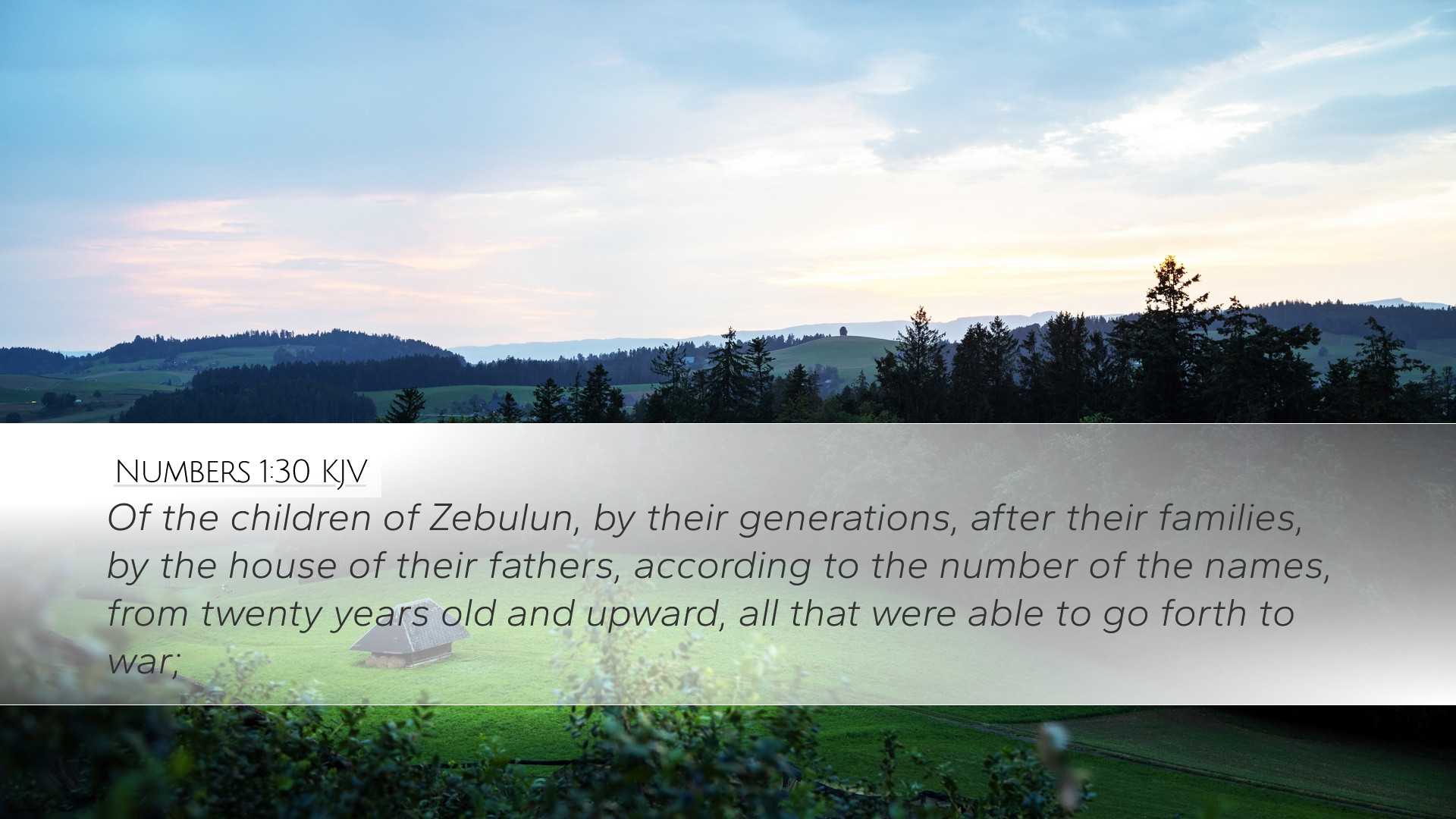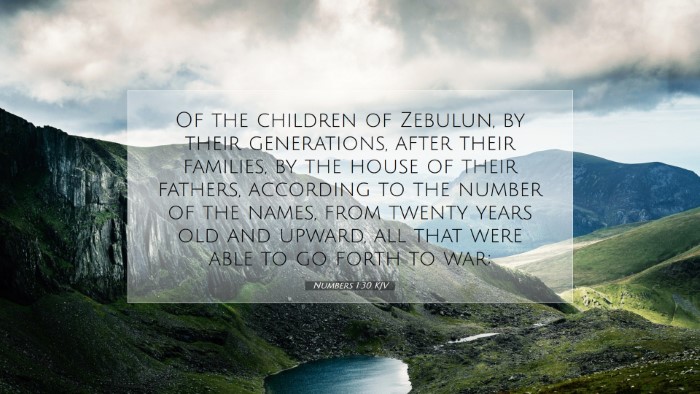Commentary on Numbers 1:30
In the Book of Numbers, chapter 1, verse 30, we find a critical assessment of one of the tribes of Israel, specifically the tribe of Dan. This verse states:
"Of the children of Dan, by their generations, after their families, by the house of their fathers, according to the number of the names, from twenty years old and upward, all that were able to go forth to war."
General Exegesis
This verse introduces the census of the people of Israel as they prepare to enter the Promised Land. The focus is on the tribe of Dan, which is significant as Dan stands as a representative of calculating strength within Israel. The census is essential for organization, military purpose, and societal structure.
Insights from Matthew Henry
Matthew Henry emphasizes the importance of enumeration for the tribe of Dan. In his commentary, he notes:
- The Significance of Naming: Henry highlights the detailed process of naming individuals that reflects the personal relationship between God and His people. Each name represents a family story and the collective heritage.
- Military Preparedness: According to Henry, the specification 'twenty years old and upward' suggests the commencement of military duty and readiness to serve. He explains that this threshold indicates the age at which young men were considered capable and responsible for warfare.
- God's Sovereignty: Henry views this census as an affirmation of God's sovereignty over Israel. By knowing the number of those equipped for battle, God demonstrates not just the size of the nation but also His power to protect and lead them into victory.
Insights from Albert Barnes
Albert Barnes provides a detailed analysis on the implications of the tribe of Dan:
- Tribal Distinction: Barnes notes that the census serves to distinguish each tribe's contribution to the collective strength of Israel. The importance of Dan's enumeration signifies their role in the national identity of Israel.
- Leadership and Organization: He emphasizes the need for strong leadership in warfare, suggesting that the detailed recordkeeping was also a preparation for delegating responsibilities within the military framework.
- Dan's Future Role: Barnes alludes to the future of the tribe of Dan, indicating that later events would highlight their significance in both faithful and unfaithful service to God. This commentary adds depth by connecting present responsibilities with future outcomes.
Insights from Adam Clarke
Adam Clarke's commentary further elucidates the cultural and military aspects reflected in Numbers 1:30:
- Cultural Geography: Clarke discusses the geographic placement of the tribe of Dan, suggesting that their location had ramifications for their identity and military positioning as they traversed the landscape of Canaan.
- Nature of Warfare: He delves into the ancient context of warfare, explaining the strategies and expectations of tribal warfare—insights relevant for understanding the corporate nature of Israel's military operations.
- Dynamics of Leadership: Clarke accentuates the need for coordinated leadership among the tribes, emphasizing that this verse sets the stage for identifying leaders from each tribe to oversee their readiness for service.
Theological Implications
Integration of the insights from these commentaries reveals several theological implications:
- God's Orderliness: The meticulous enumeration speaks to a God of order who prepares His people for collective action.
- Community Responsibility: Each person's name in the census underscores the collective responsibility within the community of believers, echoing the New Testament's call for unity in the body of Christ.
- Preparation for God's Purpose: The readiness for battle in this context signifies the broader spiritual readiness that God requires from His followers in facing life’s spiritual warfare.
Practical Applications
For pastors, students, theologians, and Bible scholars, this verse and its commentary provide valuable lessons:
- Emphasizing Accountability: Just as Israel was organized into tribes with specific roles, modern congregations should understand the importance of accountability within the church body.
- Preparation for Service: Encouraging individuals to be prepared, capable, and active in their ministry reflects the call to readiness in spiritual warfare.
- Acknowledging Heritage: Understanding one's personal and communal heritage can inform identities within the church and foster a spirit of unity and purpose.
Conclusion
Numbers 1:30 serves not only as a historical documentation of Israel's military capabilities but also as a powerful reminder of the roles and responsibilities within the community of faith. The combined insights from Matthew Henry, Albert Barnes, and Adam Clarke reveal a multifaceted understanding of God’s call to His people.
Through detailed analysis, we see a God who is intricately involved in the lives of His people, preparing them for service according to His divine plan. As we contemplate this verse, may we be inspired to consider our roles, responsibilities, and readiness in fulfilling God’s purposes in our own lives and communities.


